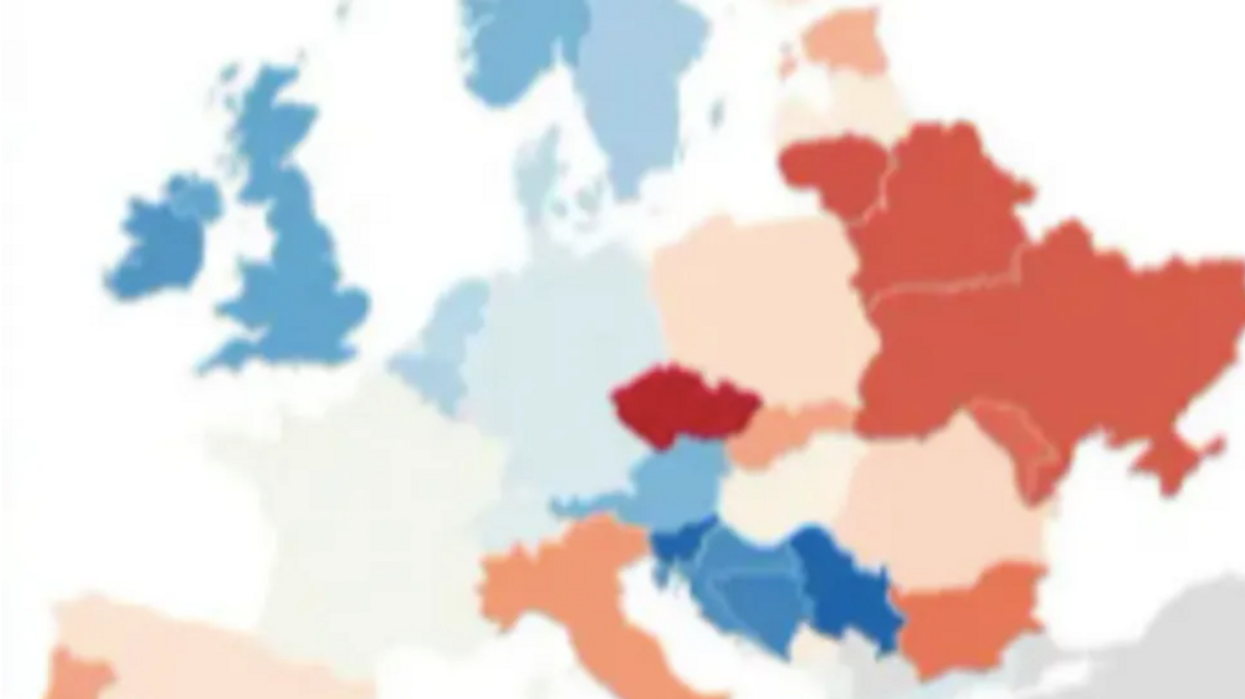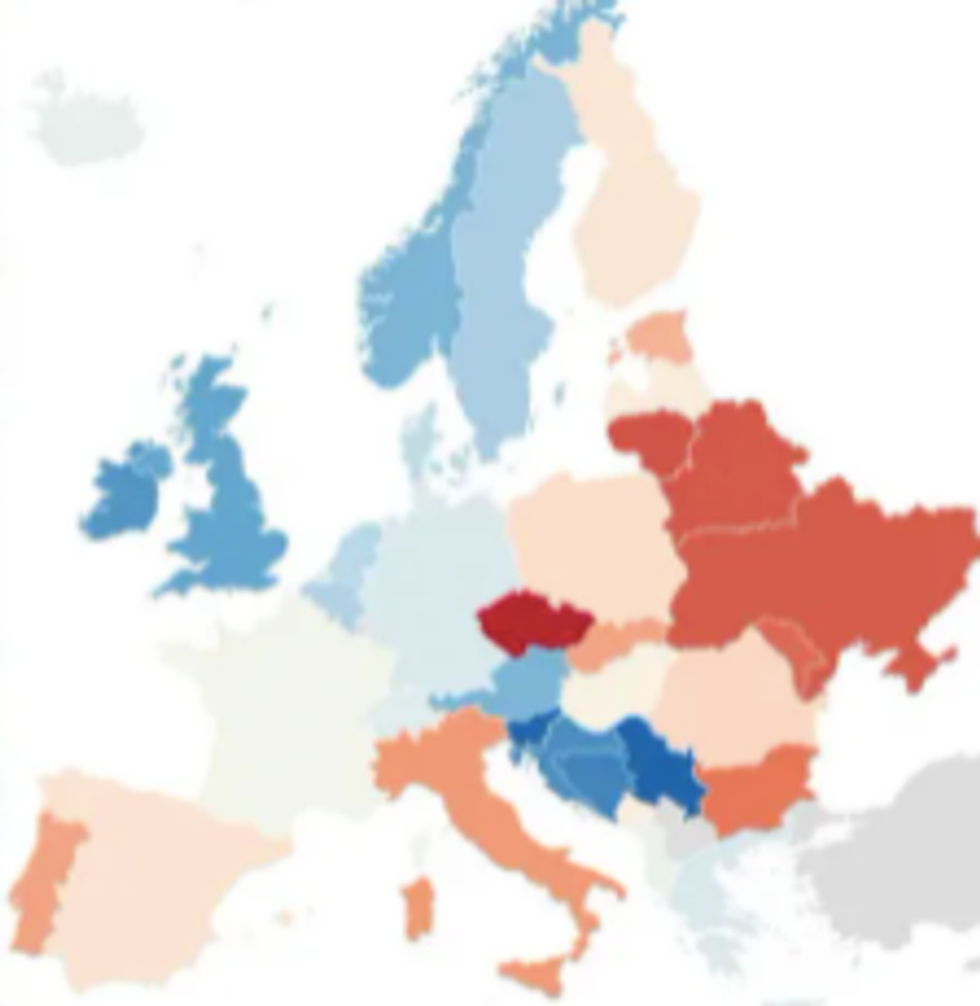
A study that ran from 2002-2015 into social attitudes by Harvard University has mapped the countries in Europe with the highest incidents of racial bias.
The test created by 'Project Implicit' at Harvard, is a short interactive quiz in which participants pair images with words.
One component involved associating positive or negative terms with black and white faces respectively.
It used an 'implicit association test' (IAT) and the terminology included words like 'good', 'bad', and 'evil'.
In March 2017 the group produced a map, recreated here using the same data by indy100.

The data was released by Harvard and the Project Implicit team onto the Open Science Framework.
Scores ranged between 0.298 for participants from Serbia, and 0.557 for those from the Czech Republic.
Before bluer countries get uppity, the test showed that people from every country in Europe were slower to associate black faces with positive descriptions than white faces.
They found that not holding racist views did not protect people from having an implicit bias.
Writing on The Conversation, the authors of the study conceded that the definition of 'implicit' was controversial.
"The exact meaning of implicit attitudes, and the IAT, are controversial but we believe they reflect the automatic associations we hold in our minds, associations that develop over years of immersion in the social world."
They explained how it could be used to indicate racial bias and behaviour.
"Although we, as individuals, may not hold racist beliefs, the ideas we associate with race may be constructed by a culture which describes people of different ethnicities in consistent ways, and ways which are consistently more or less positive. Looked at like this, the IAT – which at best is a weak measure of individual psychology – may be most useful if individuals’ scores are aggregated to provide a reflection on the collective social world we inhabit."
They also acknowledged the limitations of the study, such as only comparing black and white faces, when attitudes to ethnicity have many more facets.
Does implicit prejudice lead to bias behaviour?
Due to the duration of the study, it's been quoted multiple times and the link between bias thoughts and bias behaviour is presumed.
A cause and a correlation are suggested from the data to explain racism in Europe.
Yet, a 2016 study by the University of Wisconsin at Madison, Harvard, and the University of Virginia suggests the link between inner racist thoughts and racist behaviour may be less strong the Project Implicit suggests.
Patrick Forscher, one of the co-authors of this paper, told Chronicle: "When you actually look at the evidence we collected, there’s not necessarily strong evidence for the conclusions people have drawn."
Moreover, an article by a researcher at the University of Sheffield observed that the participants are Europeans, visiting an American website - implying they were more tech savvy, younger, and English speakers.
Though those who reject implicit bias, can be motivated by the reasoning 'I'm a liberal, I couldn't be racist, even if this test says I associate negative qualities with black people'.
While this may be true, it doesn't void the argument that the data does not show implicit bias turning into bias behaviour.
Sign up to our free Indy100 weekly newsletter
Have your say in our news democracy. Click the upvote icon at the top of the page to help raise this article through the indy100 rankings.













